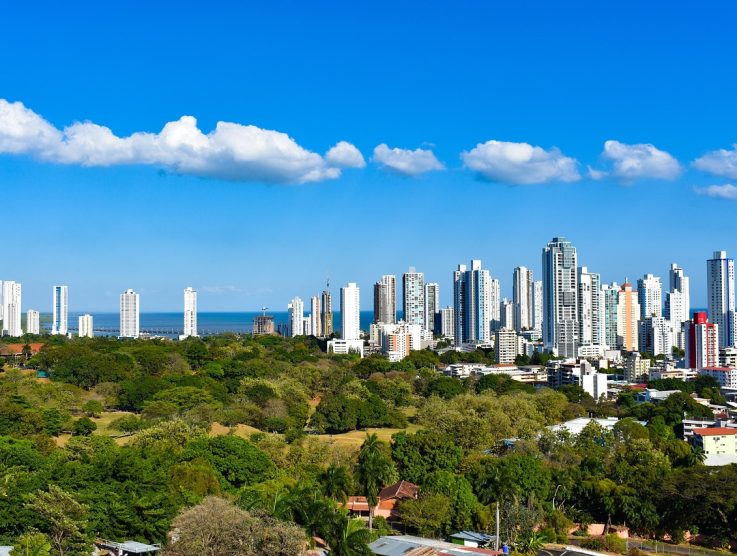Imagine a place where rich history meets vibrant modernity, and where teaching English can open doors to unforgettable experiences. Serbia, a gem in the heart of the Balkans, offers a unique blend of cultural heritage and contemporary lifestyle. As an English teacher here, you’ll not only impart valuable language skills but also immerse yourself in a community eager to learn and share.
Teaching En
Ultimate Guide to Teach English in Serbia: Requirements, Salaries, and Tips
Imagine a place where rich history meets vibrant modernity, and where teaching English can open doors to unforgettable experiences. Serbia, a gem in the heart of the Balkans, offers a unique blend of cultural heritage and contemporary lifestyle. As an English teacher here, you’ll not only impart valuable language skills but also immerse yourself in a community eager to learn and share.
Teaching English in Serbia presents an opportunity to explore stunning landscapes, from the bustling streets of Belgrade to the serene beauty of the countryside. You’ll find that the Serbian people are warm, welcoming, and deeply appreciative of your efforts to help them master a global language. Whether you’re a seasoned educator or a newcomer to teaching, Serbia offers a rewarding and enriching environment for your professional journey.
Why Teach English In Serbia
Teaching English in Serbia offers unique cultural and professional rewards. Serbia combines rich history with modern life, creating an enriching environment for educators. Engaging with a welcoming community eager to learn, English teachers can contribute their skills while exploring diverse landscapes from vibrant cities to picturesque countryside.
Minimum Requirements
Prospective English teachers in Serbia need a bachelor’s degree and a TEFL certificate. While prior teaching experience is advantageous, it is not mandatory. Meeting these minimum requirements increases your chances of securing a teaching position.
Degrees and Experience
A bachelor’s degree in any field qualifies you to teach English in Serbia. Though not universally required, prior teaching experience can make you a more attractive candidate, providing you with the skills and confidence to manage classrooms effectively.
TEFL Certificates
A TEFL (Teaching English as a Foreign Language) certificate is essential for teaching English in Serbia. TEFL certificates from accredited programs, such as CELTA or TESOL, are preferred. A certificate with at least 120 hours of coursework and practical teaching components is typically required.
Potential Earnings
English teachers in Serbia can expect to earn between $800 and $1,500 per month. Salaries vary based on factors like location, level of experience, and type of institution.
| Experience Level | Typical Monthly Earnings ($) |
|---|---|
| Entry-Level | 800 – 1,000 |
| Experienced | 1,200 – 1,500 |
Finding Opportunities
Job opportunities for English teachers in Serbia are commonly found in language schools, international schools, and online job boards. Cities like Belgrade, Novi Sad, and Niš offer a higher concentration of potential positions. Networking through local expatriate communities and online forums also provides additional job leads. Websites such as TEFL.com and ESL Employment list current job openings, making them valuable resources for your job search.
Teaching English in Serbia not only advances your teaching career but also allows you to immerse in a culture that values education and diversity.
Materials And Requirements
Necessary Qualifications
A bachelor’s degree in any field along with a TEFL certificate from an accredited program qualifies individuals to teach English in Serbia. While prior teaching experience offers an advantage, it is not mandatory. Ensure your TEFL certificate includes at least 120 hours of coursework.
Documents And Certifications
Completed documents include your diploma, TEFL certificate, and a valid passport. Some employers may request a background check and a health clearance. Compile these documents beforehand to streamline the job application process.
Useful Materials And Resources
Compile a mix of digital and physical resources for diverse teaching methods. Digital tools such as Duolingo or Quizlet aid in interactive learning. Physical resources like grammar books and flashcards enhance classroom activities. Explore online job boards, language schools in cities like Belgrade, Novi Sad, and Niš, and international schools for teaching opportunities.
Typical earnings in Serbia for English teachers range between $800 and $1,500 per month, with variations based on experience and location.
Finding Teaching Opportunities
Exploring teaching opportunities in Serbia covers several avenues, each with specific requirements and potential earnings. Understanding these options aids in securing your desired position effectively.
Private Language Schools
Private language schools offer abundant teaching opportunities in Serbia. Minimum Requirements: You need a bachelor’s degree and a TEFL certificate with at least 120 hours of coursework. Experience: Prior teaching experience enhances your application, though it is not mandatory. Earnings: Potential earnings range from $800 to $1,500 per month. Job Search: Utilize online job boards and directly contact schools in cities like Belgrade and Novi Sad.
Public Schools
Teaching in public schools provides stable employment but fewer positions are available to foreign teachers. Minimum Requirements: A bachelor’s degree in education and a recognized TEFL certificate are standard. Experience: Prior experience in teaching is usually necessary. Earnings: Monthly earnings average around $700 to $1,200. Job Search: Opportunities are often posted on government education websites or through direct applications to school boards.
Universities
University teaching requires higher qualifications but offers significant professional growth. Minimum Requirements: A master’s degree in English or a related field and a TEFL certificate are required. Experience: Extensive teaching experience and academic publications improve prospects. Earnings: Salaries range from $1,000 to $2,500 per month. Job Search: Check university career pages and academic job portals for openings.
Online Teaching Platforms
Online platforms allow flexibility and access to a broad student base. Minimum Requirements: A bachelor’s degree and a TEFL certificate. Experience: Previous online teaching experience helps but is not essential. Earnings: Rates vary widely, typically $10 to $30 per hour. Job Search: Use platforms like VIPKid and iTalki, which connect teachers with learners globally.
Explore these options to find the best fit for your skills and career goals in Serbia.
Applying For Jobs
Crafting A Resume
First, highlight relevant teaching experience, if any, on your resume. Include positions at language schools, public schools, universities, or online teaching platforms. Mention your TEFL certification, ensuring it’s from a program with at least 120 hours of coursework. Even without prior teaching experience, display transferable skills such as communication or leadership. Your degree, even if it isn’t in education, complements your profile since a bachelor’s degree is a minimum requirement.
Writing A Cover Letter
Begin your cover letter by expressing your enthusiasm for teaching in Serbia. Reference specific aspects of the culture or education system that interest you. Align your skills with the job requirements, emphasizing your TEFL certification and teaching experience. Mention how you plan to contribute to the institution’s goals and express readiness to engage with the Serbian community. Tailor each letter to the job, avoiding generic statements.
Interview Preparation Tips
Before your interview, research the institution and understand their teaching philosophy. Practice common interview questions, focusing on how you can adapt to different classroom settings and cultural contexts. Prepare to discuss your TEFL course content, especially practical teaching methods. You may be asked about classroom management and student engagement strategies. Also, inquire politely about salary ranges, typically $800 to $1,500 per month, and clarify the exact responsibilities entailed, as positions vary greatly across schools.
Salaries in Serbia range from $800 to $1,500 per month depending on experience and location. Job opportunities mainly exist in language schools, international schools, and online job boards in cities like Belgrade, Novi Sad, and Niš.
Navigating The Visa Process
Teaching English in Serbia involves specific steps for acquiring a visa. Understanding the process ensures a smooth transition.
Types Of Visas
Temporary Residence Visa permits extended stays for work and requires a job offer from a Serbian employer. Eligibility hinges on contract terms, excluding non-work-related visas.
Application Procedure
Start by securing a job offer from a Serbian school or institution to initiate the visa process. Submit your visa application at a Serbian consulate or embassy in your home country. This includes an interview and providing required documents. Processing times vary, so begin the process well ahead of your planned departure date.
Required Documents
Gather these documents for your Temporary Residence Visa:
- Valid Passport: Ensure it is valid for at least 12 months.
- Job Offer or Employment Contract: Secure an offer from a recognized educational institution in Serbia.
- Proof of Accommodation: Provide an address in Serbia where you will stay.
- Proof of Health Insurance: Obtain insurance valid in Serbia.
- Financial Means Evidence: Show you can financially support yourself during your stay.
- TEFL Certificate: Typically a 120-hour TEFL course from an accredited institution.
- Bachelor’s Degree: Required in any field.
- Visa Application Form: Complete the form provided by the Serbian consulate or embassy.
Begin preparing these documents early to accommodate potential delays in obtaining necessary paperwork.
Studying these requirements and steps prepares aspiring English teachers for their adventure in Serbia.
Preparing For The Classroom
Teaching English in Serbia combines professional opportunities with cultural immersion. Preparation involves understanding the education system, adapting to cultural norms, and planning effective lessons.
Understanding The Serbian Education System
Serbia’s education system includes primary, secondary, and tertiary levels. Primary education spans eight years, typically for students aged 7-15. Secondary education includes vocational schools and gymnasiums. Vocational schools offer specialized training for various professions, while gymnasiums prepare students for higher education.
Cultural Sensitivity And Adaptation
Adapting to Serbian culture enhances teaching effectiveness. Serbians value respect and direct communication. Building rapport with students and colleagues involves understanding local customs and traditions.
Key Points:
- Respect in the Classroom: Maintain polite interactions.
- Direct Communication: Adopt clear and straightforward communication styles.
- Community Engagement: Participate in local events to build connections.
Lesson Planning And Curriculum
Crafting effective lessons involves using diverse resources and aligning with the curriculum. Interactive activities, digital tools, and physical materials enhance student engagement.
Suggestions:
- Digital Resources: Utilize platforms like Duolingo and Quizlet.
- Physical Materials: Incorporate grammar books and flashcards.
- Curriculum Alignment: Ensure lessons meet school standards.
Minimum Requirements
To teach in Serbia, a bachelor’s degree in any field and a TEFL certificate are essential. The TEFL certificate should have at least 120 hours of coursework. Prior teaching experience, while advantageous, is not obligatory.
Opportunities And Earnings
Earnings for English teachers in Serbia range from $800 to $1,500 per month, based on experience and location. Teaching positions are available in:
- Language Schools: Offer $800 to $1,500 monthly.
- Public Schools: Provide $700 to $1,200 monthly.
- Universities: Require a master’s degree and offer $1,000 to $2,500 monthly.
- Online Platforms: Pay around $10 to $30 per hour.
Job Application Tips
Finding teaching opportunities involves searching various platforms:
- Language Schools: Research online directories.
- International Schools: Check school websites.
- Job Boards: Use platforms like TEFL.com and Dave’s ESL Cafe.
Tailor your resume to highlight relevant experiences and skills, and write a cover letter expressing enthusiasm for teaching in Serbia. Research institutions and practice common interview questions for better preparation.
Prepare thoroughly to enhance your teaching experience in Serbia, both professionally and culturally.
Teaching Techniques And Best Practices
Effective methods transform your teaching experience in Serbia and enhance student engagement.
Effective Teaching Strategies
Implementing diverse strategies optimizes student learning. Active Learning: Encourage participation through discussions and group work. For example, interactive debates foster critical thinking. Differentiated Instruction: Adapt materials to meet diverse needs. Using tiered activities ensures all students progress. Formative Assessment: Regular feedback, like quizzes or peer reviews, identifies learning gaps and informs instruction adjustments. Cultural Relevance: Incorporate local contexts to make lessons relatable. Utilize Serbian topics or current events to create connections.
Using Technology In The Classroom
Leveraging technology enhances interactivity and learning outcomes. Digital Tools: Platforms like Duolingo and Quizlet support language acquisition. They offer accessible, structured practice. Interactive Whiteboards: Tools such as SMART Boards facilitate dynamic, multimedia presentations. They engage students visually and interactively. Online Resources: Incorporate videos, podcasts, and articles from reputable educational websites to diversify teaching materials. For instance, using TED-Ed videos enriches comprehension and discussion skills. Virtual Classrooms: Tools like Zoom or Microsoft Teams enable effective online instruction, making remote teaching feasible and efficient.
Engaging Activities And Games
Engagement boosts retention and enthusiasm in language learning. Role-Playing: Simulate real-life scenarios, such as ordering in a restaurant, to enhance conversational skills. Language Games: Utilize games like Bingo or Pictionary to reinforce vocabulary and grammar in a fun, interactive way. Collaborative Projects: Group projects, such as creating a class newspaper, foster teamwork and practical language use. Storytelling: Encourage creativity with short story creation, helping students practice syntax and narrative skills.
By utilizing these techniques and best practices, teaching English in Serbia becomes a highly rewarding endeavor, ensuring both educational success and cultural immersion.
Living In Serbia
Living in Serbia offers a unique blend of historical and modern experiences, making it an intriguing destination for teaching English.
Housing And Accommodation
Finding suitable housing in Serbia depends on your location and budget. In major cities like Belgrade, Novi Sad, and Niš, numerous rental options exist, ranging from apartments to shared housing. Renting an apartment in Belgrade typically costs between $250 to $600 per month, depending on the neighborhood and size. Smaller cities and towns offer more affordable options.
Furnished apartments are common, but ensure to clarify what is included with your landlord. Online platforms like City Expert and Halo Oglasi are reliable sources to search for accommodations. Many language schools and institutions assist teachers in finding housing. It’s advisable to select housing close to your workplace to avoid extensive commuting.
Learning Basic Serbian Phrases
Learning basic Serbian phrases enhances your daily interactions and shows respect for the local culture. Focus on essential phrases like:
- Dobro jutro (Good morning)
- Hvala (Thank you)
- Izvinite (Excuse me/Sorry)
- Koliko košta? (How much does it cost?)
- Da/Nem (Yes/No)
Understanding basic phrases helps in navigating daily tasks like shopping and public transportation. Consider using language learning apps like Duolingo for Serbian or attending local language courses. Engaging in conversations with locals also accelerates your learning.
Cost Of Living And Budgeting Tips
The cost of living in Serbia is generally low compared to Western Europe and North America. Here are key expense categories:
| Expense | Monthly Cost (in USD) |
|---|---|
| Groceries | $150 – $250 |
| Dining Out | $5 – $15 per meal |
| Utilities | $50 – $100 |
| Public Transport | $25 |
For effective budgeting, track expenses and prioritize essentials. Shopping at local markets reduces grocery costs. Utilize public transportation passes for economical travel. Streaming services and second-hand stores offer entertainment and shopping options within budget.
In terms of minimum requirements for teaching, a bachelor’s degree in any field and a TEFL certificate from an accredited program with at least 120 hours of coursework are essential. While prior teaching experience is beneficial, it is not mandatory. Potential earnings range from $800 to $1,500 per month, depending on experience and location.
Common platforms for job opportunities include language schools, international schools, and online job boards. Primary job hubs are the cities of Belgrade, Novi Sad, and Niš, where the concentration of English language learners is highest.
Troubleshooting Common Issues
Navigating common challenges ensures a smoother teaching experience. Commonly encountered issues include homesickness, classroom management, and administrative matters.
Dealing With Homesickness
Feeling homesick is normal after relocating to Serbia. Keep connections with loved ones through regular video calls and messaging apps like WhatsApp and Skype. Engage in local activities, visit cultural sites, and explore Serbian cuisine to create new memories and build a social circle. Recall positive aspects of your home country, and integrate familiar routines into your new environment for comfort.
Classroom Management Challenges
Classroom management can be more demanding in a foreign country. Establish clear rules from the beginning, and use consistent discipline practices. Serbian students respect firm but fair teachers, so maintain an authoritative yet approachable demeanor. Incorporate interactive lessons with visual aids and hands-on activities to keep students engaged. For instance, use flashcards and language games to make learning fun and effective.
Handling Administrative Issues
Administrative tasks might seem daunting, but organization simplifies them. Ensure all necessary documents, such as your diploma, TEFL certificate, and passport, are current and properly filed. If facing bureaucratic delays or complications, maintain regular communication with your employer and Serbian authorities. Promptly follow up on pending applications and requests for documentation. Reliable resources include your school’s administrative office and expat forums like Expat.com or InterNations for community support.
Minimum Requirements
To teach English in Serbia, a bachelor’s degree in any field and a TEFL certificate with at least 120 hours of coursework are necessary. Certificates from accredited programs are preferable. While prior teaching experience is advantageous, it is not mandatory.
Earnings
English teachers in Serbia typically earn between $800 to $1,500 per month, depending on experience and location. Cities like Belgrade, Novi Sad, and Niš generally offer higher salaries.
Where to Find Opportunities
Job opportunities are most commonly found in language schools, international schools, and online job boards. Reliable platforms for job listings include Teach Away, ESL Cafe, and local Serbian job portals.
These strategies and insights help navigate the common challenges faced by English teachers in Serbia, ensuring a rewarding experience.
Conclusion
Teaching English in Serbia offers a rewarding blend of professional growth and cultural immersion. You’ll find yourself in a welcoming community eager to learn, surrounded by a rich historical backdrop and diverse landscapes. With a manageable cost of living and a range of job opportunities, Serbia is an attractive destination for both seasoned educators and newcomers.
By preparing thoroughly and understanding the local education system and culture, you can make a significant impact in your students’ lives while enhancing your own teaching skills. Embrace the adventure, and you’ll discover that teaching English in Serbia is not just a job but a fulfilling life experience.
Frequently Asked Questions
What are the minimum requirements to teach English in Serbia?
To teach English in Serbia, you need a bachelor’s degree in any field and a TEFL certificate with at least 120 hours of coursework. Prior teaching experience is advantageous but not mandatory.
How much can English teachers in Serbia expect to earn?
English teachers in Serbia can expect to earn between $800 to $1,500 per month, depending on their experience and location.
What types of teaching opportunities are available in Serbia?
Teaching opportunities in Serbia include positions at private language schools, public schools, universities, and online teaching platforms.
What documents are needed to apply for teaching jobs in Serbia?
You will need a diploma, TEFL certificate, and a valid passport. Some employers may also request a background check and health clearance.
What cities in Serbia offer the most job opportunities for English teachers?
Cities like Belgrade, Novi Sad, and Niš offer the most job opportunities for English teachers.
What is the process to obtain a Temporary Residence Visa for teaching in Serbia?
To obtain a Temporary Residence Visa, you need a job offer from a Serbian employer and must prepare necessary documents early to accommodate potential delays.
What are some effective teaching techniques for English classes in Serbia?
Effective teaching techniques include active learning, differentiated instruction, and formative assessment. Utilizing digital tools and interactive resources can enhance engagement.
How much does it cost to live in major cities in Serbia?
Rental prices in major cities like Belgrade range from $250 to $600 per month. The general cost of living is low compared to Western Europe and North America.
How can teachers prepare for cultural adaptation in Serbia?
Teachers should understand the Serbian education system and prioritize cultural sensitivity. Respectful interactions and direct communication are valued in Serbian culture.
What strategies can help cope with homesickness?
Maintain connections with loved ones, engage in local activities, and explore the community to help cope with homesickness.














